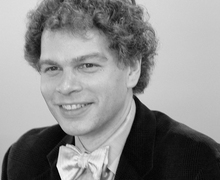Interview with James Bottomley
The Selfish Contributor Explained

James Bottomley will give a talk about The Selfish Contributor Explained at FOSDEM 2020.
Q: Could you briefly introduce yourself?
Sure, I’m James Bottomley. I’ve been active in Open Source, specifically the Linux Kernel, since 1992, both as a user of Linux as well as a contributor. My major open source contributions were to Linux SCSI beginning in 2002 as the Maintainer and also helping to create the Linux Foundation Technical Advisory Board in the old OSDL in 2006. The latter foray into Open Source politics was where I first became interested in the dynamics of open source communities.
Q: What will your talk be about, exactly? Why this topic?
It will be a look at how harnessing selfish motivations is very much required for a successful open source project.
Why is complicated, but today there’s a strong perception of open source as an altruistic exercise (I keep hearing people say you should be doing it for the benefit of the community and, indeed, a lot of projects today give preferential treatment to “community members” or people willing to demonstrate commitment to the community over so called “drive by” coders who are just trying to get a single feature in) … even though everyone who gives this impression would also in the next breath quote “scratch your own itch” from the Cathedral and the Bazaar as a good motivation. Understanding why you’re contributing and why others are contributing is vital to building trust between the contributors in a project. It shouldn’t necessarily matter that some contributors will only be there for a short time while others may have given a much longer term commitment.
Q: What do you hope to accomplish by giving this talk? What do you expect?
I think it’s important that the next generation of open source developers learn from the extensive history we’ve built up in the last 40 years or so. In particular the hugely important role of licences in co-opting selfish motivations to benefit the community and especially the role reciprocal licences played in this. But for the UNIX wars and BSD lawsuit, which were essentially caused partly because the BSD licence is too permissive to provide a strong co-option of selfish interests, BSD might have been the dominant open source operating system and Linux just another student hobby project.
Q: What has changed over the last 20 years in the relations between companies and the FOSS community?
Certainly corporations have gone from hating open source as a danger to their carefully built up intellectual property to seeing it as an essential element in both their technical and marketing portfolios. However, again, it’s very important to remember that corporations are always in it for the money and not the community, so understanding how to co-opt their selfish motivations for the benefit of the community is an important function of any open source project. Incidentally, in the early days, convincing corporations to adopt open source was essentially convincing them that actually contributing to open source rather than fighting it could be better for their bottom line … I think I’ve got over a decade of talks on that topic.
Q: 2020 marks the 20th anniversary of (F)OSDEM. What contributions has FOSDEM made to the advancement of FOSS, or how did you in particular benefit from FOSDEM?
I think it’s always a benefit to have a conference that’s truly about open source developers rather than marketing: by developers for developers (or perhaps even more importantly: people interested in becoming developers) and FOSDEM, being free and so well attended, is probably the most successful in that regard. It provides a great venue for meeting your peers and talking to them. The slight downside to FOSDEM is that it is so huge with so much going on in parallel, so this year, for instance, my two most important topics are containers and legal … and they’re both going on in parallel on Saturday, so I’ll have some hard choices to make.
Q: Have you enjoyed previous FOSDEM editions?
I have, although I managed to miss out last year, I gave talks at FOSDEM in 2018 and 2016

Creative Commons License
This interview is licensed under a Creative Commons Attribution 2.0 Belgium License.